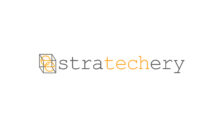Ben Thompson, writing for Stratechery:
This is the inverse of Swift leveraging her fans to acquire her masters: future artists will wield that power from the beginning (like sovereign writers). It’s not that “art is important and rare”, and thus valuable, but rather that the artists themselves are important and rare, and impute value on whatever they wish.
To put it another way, while we used to pay for plastic discs and thought we were paying for songs (or newspapers/writing or cable/TV stars), empowering distribution over creators, today we pay with both money and attention according to the direction of creators, giving them power over everyone. If the creator decides that their NFTs are important, they will have value; if they decide their show is worthless, it will not. And, in the case of Swift, if she decides that albums are valuable they will be, not because they are now scarce, but because only she can declare an album “Taylor’s Version”.
I found this article interesting. I’m not sure how much of it I agree with, and how much seems to be reaching to draw connections between unrelated things, but it did make me think.


